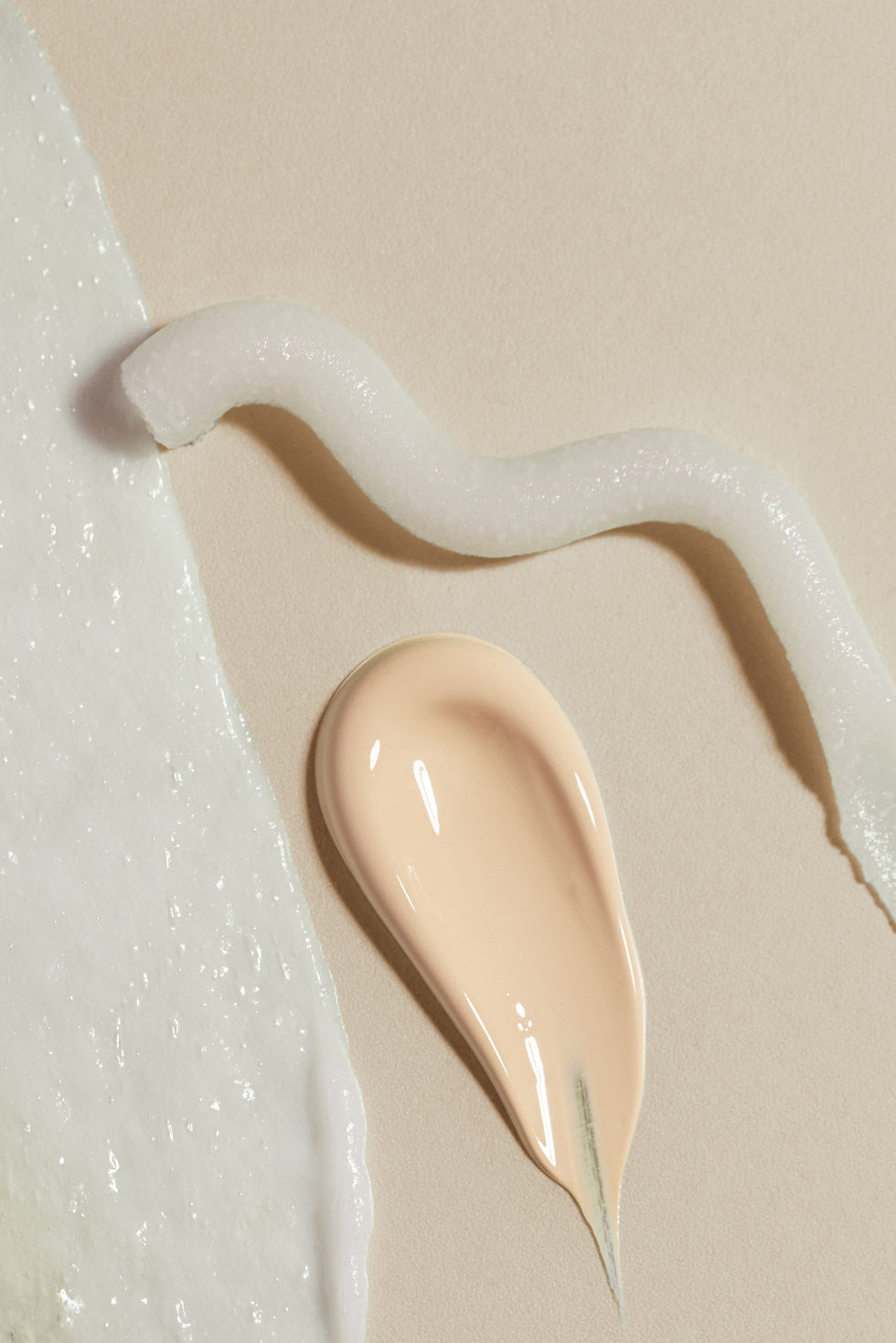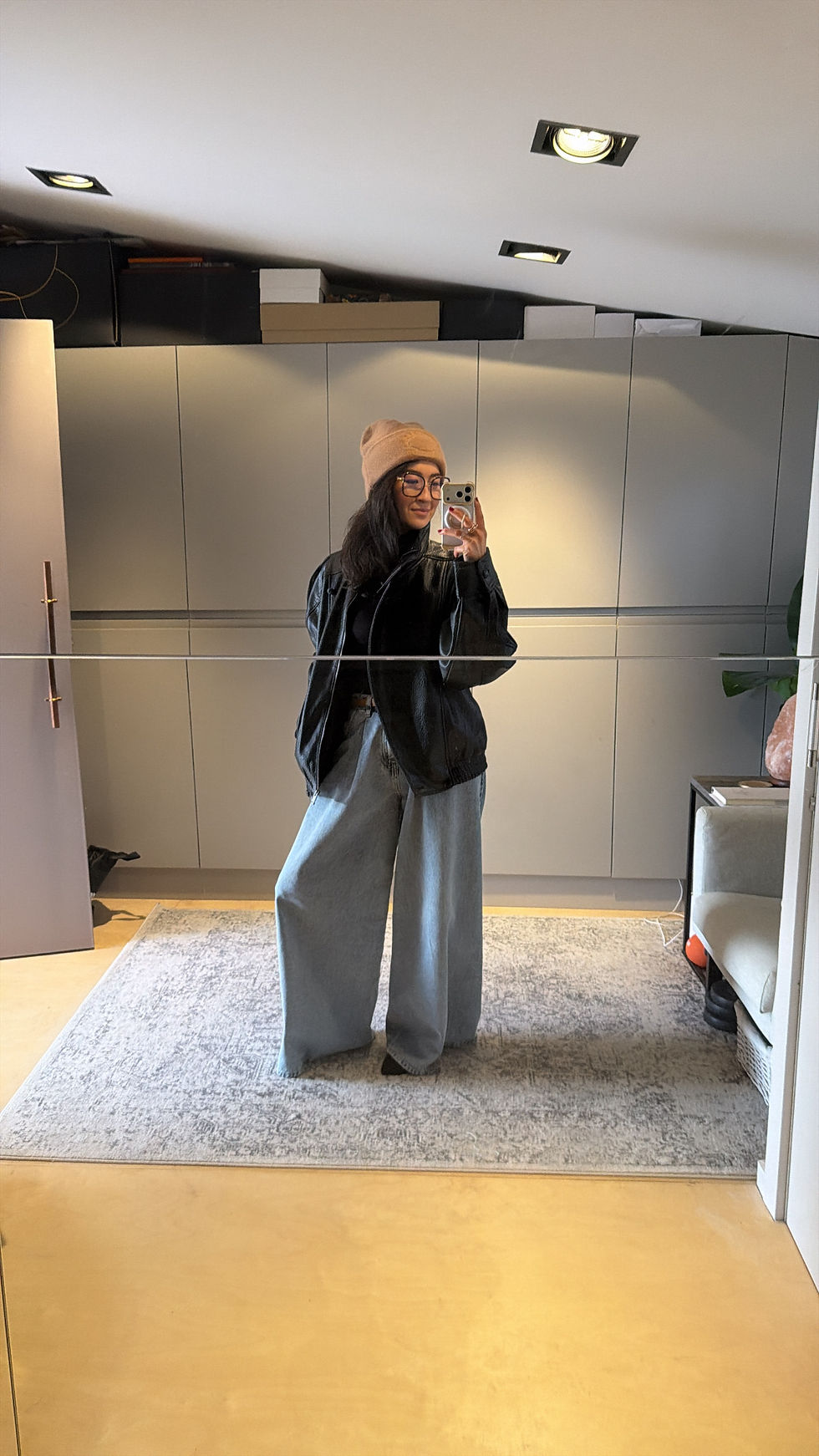How to Choose the Best Sunscreen Fact Sheet
- Emmaline Tsui
- Apr 21, 2025
- 4 min read
Sunscreen is one of the most important steps in any skincare routine, yet it's often misunderstood, misused, or completely neglected. With so many different formulas, SPF levels, and marketing claims, choosing the right sunscreen can feel overwhelming.

In this guide, I’m going to go through everything you need to know about buying an SPF, including why broad-spectrum protection is essential, the differences between mineral and chemical sunscreens, common sunscreen myths, and how to make sure you're applying enough. Plus, I'll introduce some of the best sunscreens available at our clinic to help you find the perfect match for your skin.
Why SPF Is Essential
Sun damage isn't just about sunburn. The sun emits two types of harmful ultraviolet rays:
UVB rays: These cause sunburn and play a key role in skin cancer.
UVA rays: These penetrate deeper into the skin, leading to premature ageing, wrinkles, pigmentation, and, crucially, skin cancer.
Most people focus only on SPF (which measures UVB protection) but forget that UVA rays are just as damaging—and they’re present all year round, even on cloudy days. That’s why broad-spectrum protection (which covers both UVA and UVB) is non-negotiable when choosing a sunscreen.
SPF 30 vs SPF 50 And Does It Really Matter?
The difference between SPF 30 and SPF 50 might seem small, but it’s significant:
SPF 30 blocks 97% of UVB rays
SPF 50 blocks 98% of UVB rays
That 1% may not seem like much, but over a lifetime, it adds up—especially if you’re someone who isn't great at reapplying. The truth is, most people don’t apply enough sunscreen, so opting for a higher SPF gives you a little extra margin of protection.
Mineral vs. Chemical Sunscreen
There’s a lot of debate about mineral (physical) vs. chemical sunscreens, but neither is automatically better than the other—it all depends on your skin type and personal preference.
Mineral Sunscreens
Contain zinc oxide and/or titanium dioxide
Sit on top of the skin and physically block/reflect UV rays
Less likely to cause irritation (great for sensitive skin)
Tend to leave a white cast, especially on deeper skin tones
Start working immediately after application
Chemical Sunscreens
Contain ingredients like avobenzone, octocrylene, and oxybenzone
Absorb UV rays and convert them into heat, which is then released from the skin
Often have a lighter texture and no white cast
Need 20 minutes to activate before sun exposure
Some sunscreens, like Nimue SUN-C SPF 40, combine both mineral and chemical filters to give you the best of both worlds (along with lots of other wonderful ingredients to protect the skin such as antioxidants as well to prevent ROS)

Common Sunscreen Myths
“I don’t need sunscreen on cloudy days.”
UVA rays penetrate clouds, windows, and even glass. If you can see outside, UV rays can reach your skin.
“Dark skin doesn’t need sunscreen.”
While melanin offers some natural protection, dark skin is still vulnerable to hyperpigmentation, sun damage, and skin cancer. Everyone, regardless of skin tone, needs SPF.
“SPF in makeup is enough.”
The amount of foundation or tinted moisturiser you’d need to apply for full SPF protection is far more than anyone would ever wear. Always apply a dedicated sunscreen underneath your makeup.
“If my SPF is high, I don’t need to reapply.”
No matter how high your SPF, it wears off due to sweat, oil production, and environmental exposure. Reapplying every 2-3 hours is essential for full protection.
“It will stop me absorbing vitamin D.”
Don't worry! You only need to stick your arm out of the window to absorb vitamin D! You don't only absorb it through your face. You can still absorb it through your head and other body parts. SPF on your face and neck is essential though.
How Much Sunscreen Should You Be Using?
Most people don’t use enough sunscreen, which significantly reduces its effectiveness. Here’s how much you actually need:
Face & Neck: Two finger-lengths worth
Body: A full shot glass (around 30ml)
Reapplication: Every 2-3 hours, especially if sweating or swimming
The Best Sunscreens: Which One Is Right for You?
All sunscreens sold in my clinic offer high broad-spectrum protection and cater to different needs. Here’s a breakdown of the options:
Best for Everyday Use: Nimue SUN-C SPF 40
A lightweight, non-oily formula that offers broad-spectrum protection plus anti-ageing benefits. Ideal for daily wear, it absorbs quickly and works well under makeup. This is also my all time best selling product. It's light but also nourishing. I've used it for twenty years now and still say it's my favourite.
Best for a Natural Glow: Nimue Sun-C SPF 40 Tinted
A tinted version of the original, this SPF evens out skin tone and provides light coverage, making it great for no-makeup days. Clients also love to wear this instead of foundation, it's safe to apply after skin peels and great for holidays when you just want a gentle 'glow'.
Best for Maximum Protection: Nimue Sun-C SPF 50 Environmental Shield
With full-spectrum protection (UVA, UVB, IR, and HEV), this SPF is perfect for those who want extra defence against pollution, infrared rays, and environmental damage. This is a very different consistency to the SPF 40. It's mattifying and a much more liquid formulation but still a firm favourite with clients.
Best for On-the-Go Touch-Ups: SkinBetter Science Sunbetter® SHEER SPF 50 Sunscreen Stick
A transparent, weightless SPF stick that’s perfect for reapplying throughout the day. Great for sensitive and post-procedure skin.
Best for a Tinted, High-Protection Finish: SkinBetter Science Sunbetter® TONE SMART SPF 50 Compact
A 100% mineral SPF 50 in a compact, offering a tone-adapting tint and matte finish. Works well as a primer or standalone product. I also adore this under my eyes as a daily concealer, It's buildable as well. Gives the vibes of a classic, old school compact that I love. It's also pore 'blurring' so smooths everything out.
Best for Anti-Ageing: Revision Intellishade® TruPhysical SPF 45
A 5-in-1 anti-ageing moisturiser with SPF 45, it hydrates, protects, corrects, conceals, and brightens in one step. Contains over 20 age-defying ingredients. Clients adore this for holidays! It has some magic whereby it matches your natural skin tone so no need to choose a shade.
The most important thing about sunscreen? You need to wear it—every day. Finding a formula that feels good on your skin makes all the difference. Everyone is so different and it's all about personal preference.
At my clinic, I stock a carefully curated selection of high-performance sunscreens designed to suit different skin types, concerns, and lifestyles. However, if you're unsure which one is right for you, why not fill out the skin check-in form and I’ll help you choose the perfect SPF for your needs.
I hope you found this little guide useful,
Thank you so much for reading,
Emmaline











Comments